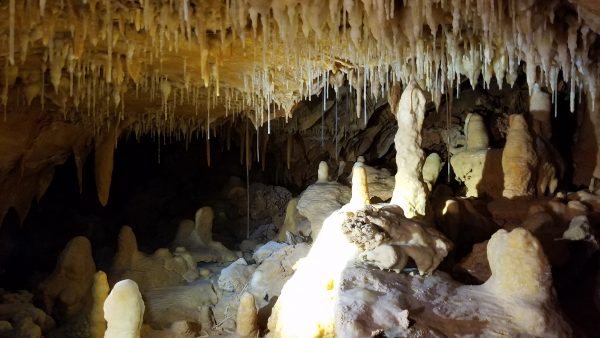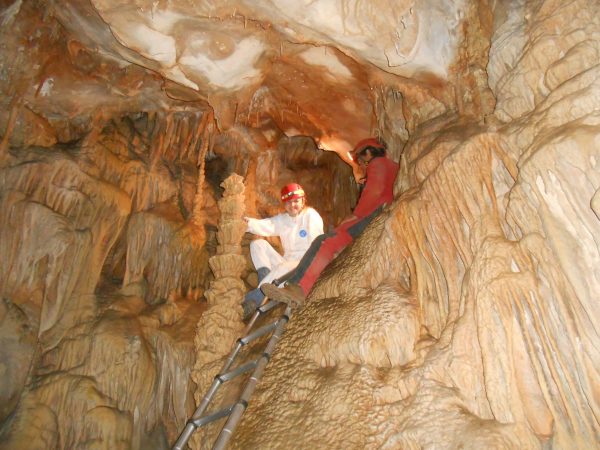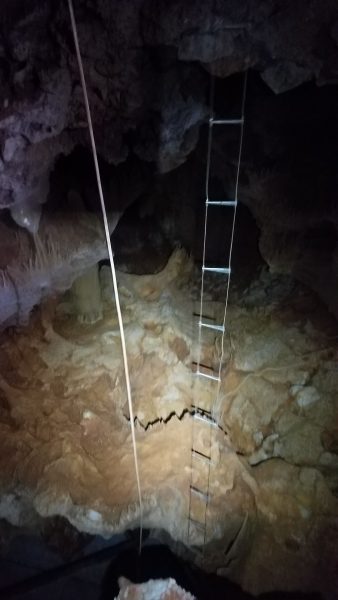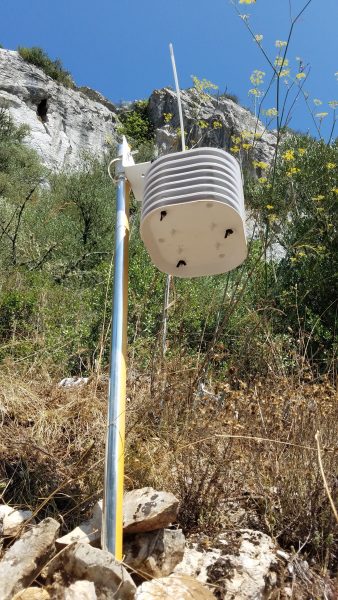In September, PhD student Diana Thatcher along with Gabi Hiatt, an undergraduate student from Cornell College, returned to Portugal to visit a total of three caves in central and southern Portugal. This project (Collaborative research: Bridging the gap from northern Iberia to northwest Africa to reconstruct atmospheric dynamics and hydroclimate for the last 2,500 years) was recently funded by the National Science Foundation under the Paleo Perspectives on Climate Change (P2C2) program. The focus of this trip was installing new instruments inside and outside of the three caves.

Diana and Gabi were joined by five Portuguese cavers who accompanied them into two new caves in the Algarve (southern) region of Portugal. In these new caves, relative humidity and temperature loggers were installed, along with drip counters, pressure loggers, and slides for calcite growth. In one of the southern caves, a temperature and relative humidity logger had been in place since January, yielding our first data from this region. In one cave, the decent is treacherous but the views from inside the cave are amazing. Both caves are beautifully decorated with many young and old stalagmites, stalactites, and soda straws.

Three Portuguese collaborators joined us in central Portugal in a cave that we have been studying for several years. The tasks in this cave included retrieving data from temperature, relative humidity, pressure loggers and drip counters, collecting slides with fresh calcite, collecting drip water, and installing additional drip counters.


Another focus of this trip was installing additional monitoring equipment outside all three caves to better characterize how the environments inside and outside of the cave are linked. We are fortunate to have excellent collaborators in Portugal helping make this exciting research possible!
